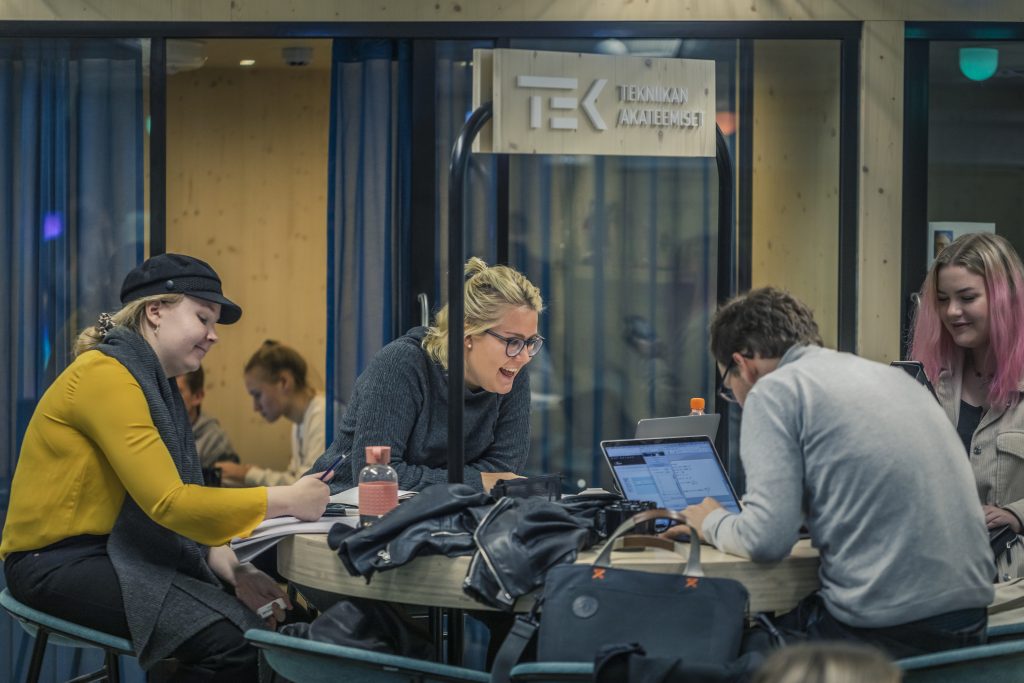Do you have a cool idea that you would like to make a startup out of but don’t know where to start? In this article, I am going to tell you how to do just that, elaborating on your options, mistakes and results from my experience, and other.
Finland is an amazing place to start your own business. Students usually focus on software and web services because it is relatively easy and you can have your own minimum viable product without spending a dime but merely coding with your team. In Finland, you have a possibility to participate in different accelerators, incubators, races for grants and funding, etc.
First things first, get your team together. I started working on my own software startup when I moved to Finland and naturally, I did not know many people, especially the ones who code. I was asking my classmates whether they know anyone who programs and would like to participate in my startup, going to software-focused guilds at LUT university, randomly writing people on LinkedIn, and at some point I just was coming up to people and asking: “Yo. You code?”. I have also published projects on boards of several entrepreneurship societies and Kiuas (website for meeting future co-founders). Did not help very much to me personally, so I started to learn how to code myself. The moral of the story is to network and get your team as soon as you can preferably with people you know. Do not make the same mistakes I did.

After writing your business plan, canvas, pitch decks (avoid words, be visual), hockey-stick financial projections, you can move on with funding and concept testing. I really advise to take part in different events and accelerators that LUTES constantly organize. At LUTES, we make sure young entrepreneurs get all the help they need to launch their ventures successfully.
You should also approach Business Mill, which is government-based incubator for startups. Those guys offered me invaluable help by guiding the development of my startup, organizing meetings with different companies, potential customers, business advisors, angel investors, etc. If VCs from Fiban are not committing, you could also apply for different grants from Business Finland, grant of around 8 thousand euros from TE-Palvelut (but you have to work on your company full time), YLE keskus, etc. Taking a 1% interest loan from Finnvera or some other bank is also an option, but that is already a risk.
If you are a member of TEK network in Finland, you have an access to free lawyers and discounts on different services for entrepreneurs. It is a good idea to have a business analytics person who is also able to do bookkeeping on the early stages of your company.
So, if you do go with Business Mill, they are going to help you find early adopters, otherwise you need to approach them by yourself, and that is a very time-consuming process. If you have found an angel investor, chances are they are going to ask for those early adopters as a proof that there is a market for your product and people already want it. Besides, having early customers is going to increase your pre-money valuation. To ensure your VCs are totally onboard with you, you should invest some money into your company also. Do not give more than 10% of your company to an investor!

Once funding is secured (or sorta kinda) you can fill partnership agreement with your co-founders. Do not forget to include vesting period (usually it is like 4 years) to make sure no one leaves during the first week with a third of the company. Divide the shares fairly according to everyone’s input by using “The shareholder’s pie calculator”, other calculators on the web, and by shear mathematical calculation. Some negotiating is also quite commonplace. However, you should leave about 10% for key employees (also explore other stock options), 20-30% for investors, 5% open pool for advisors on something else. On the web, it is commonly advised to have around 10 million shares, but 100 thousand is more than enough.
I hope this article gave some insight into the process of making the company and saved you some researching time. However, still do your homework, read business related books, learn how to pitch, and network a lot. Do not forget to become a member of LUTES, so that we are able to help you with your company as much as possible.

Sergey Vorobey
Student at LUT-University

